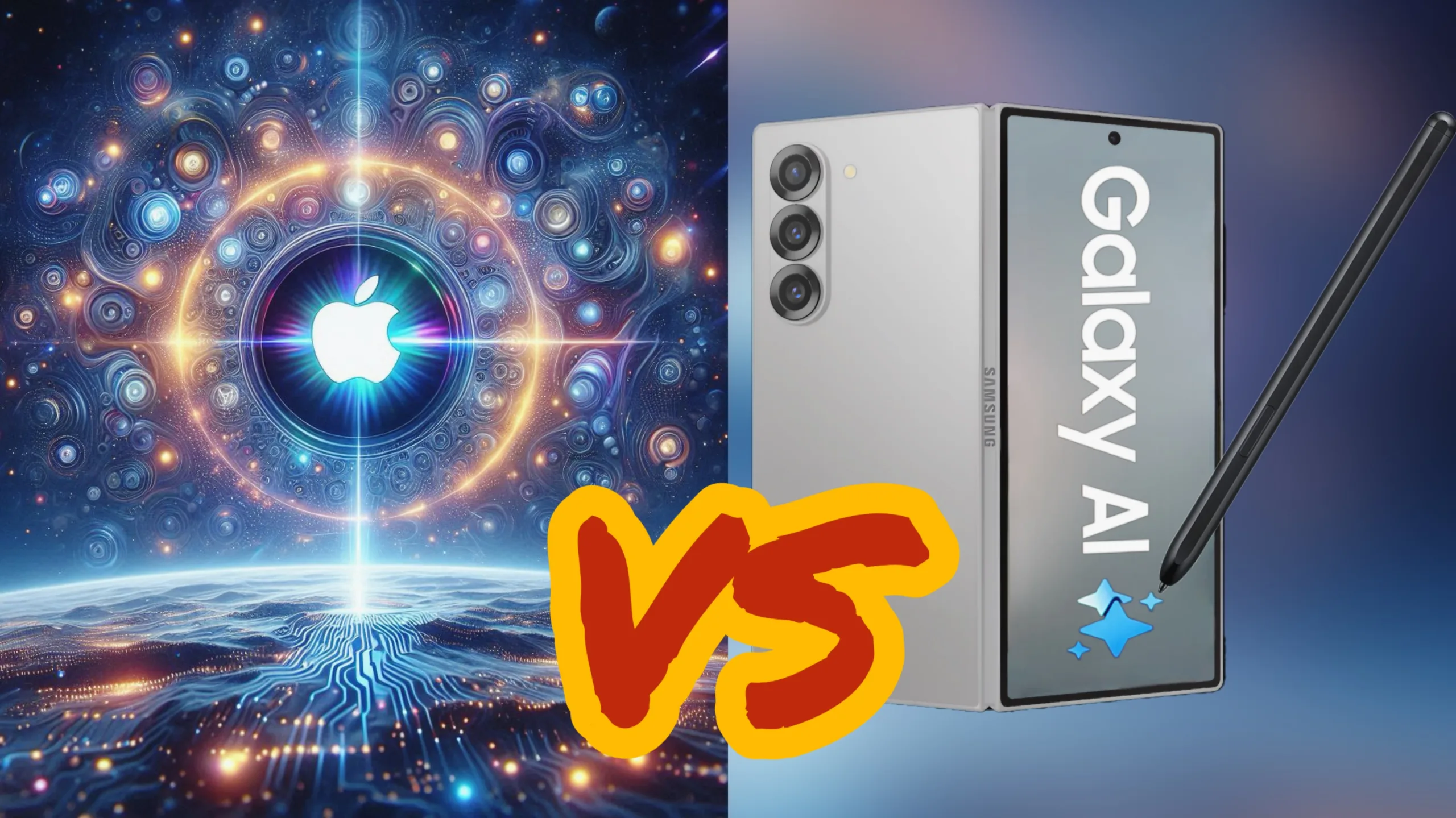Artificial Intelligence (AI) continues to transform how we interact with technology, and 2024 has introduced two innovative players in the AI field: Galaxy AI and Apple Intelligence. Each of these systems offers impressive features designed to enhance user experiences, but which one truly stands out?
In this detailed comparison, we will dive into the strengths and weaknesses of both AI systems, focusing on their features, options, use cases, and performance to help you make an informed decision. We’ll also explore which system may be better for specific user needs, whether in the context of personal assistance, enterprise applications, or developers looking to integrate AI into their solutions.
Overview: Galaxy AI vs. Apple Intelligence
Both Galaxy AI and Apple Intelligence have taken significant strides in developing systems that integrate seamlessly into everyday life. However, they follow distinct approaches, leveraging their respective ecosystems to enhance user experience.
Galaxy AI is primarily driven by Samsung’s robust hardware infrastructure and aims to compete across various tech categories. On the other hand, Apple Intelligence is a core component of Apple’s tightly integrated ecosystem, focusing on privacy, security, and enhancing device performance.
Let’s break down the unique offerings of both systems.
Galaxy AI: The Core Features
1. Enhanced Integration with Samsung Devices
Samsung has always prided itself on developing devices that integrate smoothly, and Galaxy AI continues this trend. The AI optimizes Samsung devices, ranging from smartphones to smart TVs and home appliances. The primary focus here is on creating a unified experience across devices. For instance, Galaxy AI allows users to manage all their connected devices from a single platform, making multitasking effortless.
2. Open-Source Flexibility
A standout feature of Galaxy AI is its open-source approach. Samsung has positioned this AI as a flexible tool for developers. Third-party integrations are encouraged, giving developers the freedom to create new functionalities and applications tailored to their needs. This means more personalized AI-driven solutions across a wide range of industries.
3. AI for Health and Fitness
Samsung has also leveraged Galaxy AI in the health sector. With built-in fitness tracking capabilities and AI-driven health monitoring, Galaxy AI pushes the boundaries of personal health management. The integration of wearable devices ensures accurate monitoring of users’ health data, providing insights into sleep patterns, stress levels, and daily activity.
4. Multilingual Support
One of Galaxy AI’s strong points is its multilingual support. While most AI systems are limited to a handful of languages, Galaxy AI comes equipped with advanced translation capabilities. This is especially beneficial for international users who need real-time language translation during meetings or conversations.
Apple Intelligence: A Deep Dive
1. Seamless Integration with iOS and macOS
Apple Intelligence was built with Apple’s ecosystem in mind. Unlike Galaxy AI, which emphasizes hardware diversity, Apple Intelligence focuses on tight integration within iOS and macOS environments. This AI-powered system enhances features like Siri, the Photos app, and Safari. Apple’s AI also utilizes on-device processing to keep user data secure.
2. Privacy-Centric Design
Apple’s commitment to user privacy stands out. Apple Intelligence processes data directly on the device, reducing the need for cloud-based computation. This provides a layer of security that Galaxy AI cannot match, especially for users concerned about their personal data. Apple Intelligence focuses on ensuring that user data remains private, which can be a significant selling point for businesses handling sensitive information.
3. Developer-Friendly with Swift
Apple Intelligence is designed to work seamlessly with Apple’s Swift programming language, making it easier for developers within the Apple ecosystem to build and integrate AI features into their applications. This tight integration reduces development time while maintaining a high standard of efficiency and performance. Apple Intelligence also allows for on-device machine learning, which means faster processing without reliance on external servers.
4. Augmented Reality (AR) and Machine Learning (ML)
Apple Intelligence is designed to excel in Augmented Reality (AR) and Machine Learning (ML) applications. From ARKit to Core ML, developers have access to tools that help create immersive AR experiences and sophisticated machine learning models. Apple’s AI-driven camera features also set new standards in mobile photography, leveraging AI for scene detection, object recognition, and more.
Key Comparisons: Which AI is Better?
1. Device Ecosystem
When it comes to integration within an ecosystem, Apple Intelligence excels due to its focus on a unified user experience across all iOS and macOS devices. Users within Apple’s ecosystem benefit from a seamless experience that Galaxy AI can’t replicate. On the other hand, Galaxy AI offers more flexibility with its ability to operate across a broader range of Samsung products and third-party devices.
2. Privacy and Security
Apple Intelligence is clearly the superior choice if privacy and security are priorities. Apple’s on-device processing model ensures that your data is protected, whereas Galaxy AI relies more heavily on cloud computing, which could pose security concerns for users with sensitive data.
3. Developer Flexibility
For developers looking for an open-source solution with greater flexibility, Galaxy AI offers more options. Its third-party integration potential means developers can create highly customized AI solutions. However, developers entrenched in the Apple ecosystem may find Apple Intelligence more appealing due to its Swift integration and tools like Core ML.
4. Use Cases
If your focus is on health and fitness, Galaxy AI holds the advantage with its comprehensive fitness tracking and health-monitoring features. Conversely, if you are seeking AI solutions that excel in AR and ML, Apple Intelligence is the more robust choice.
5. Global Reach
In terms of international usability, Galaxy AI comes out ahead due to its advanced multilingual support and translation capabilities. This makes it an ideal choice for businesses and individuals operating in multiple regions.
Verdict: Which AI is the Right Choice?
Choosing between Galaxy AI and Apple Intelligence depends largely on your specific needs. Apple Intelligence is ideal for users deeply invested in Apple’s ecosystem and those who prioritize privacy and security. It’s also a superior choice for developers focused on AR and ML applications.
On the other hand, Galaxy AI offers more versatility, with wider device integration and a strong emphasis on health and fitness. It’s also the better option for developers looking to customize their AI experience, thanks to its open-source nature.
Conclusion: both AI systems shine in their own right. The choice comes down to how you intend to use the AI and which ecosystem you prefer. If you want a secure, privacy-centric AI, go with Apple Intelligence. If you need a more flexible, open-source AI with a focus on health and multilingual capabilities, Galaxy AI is the better option.
Note: This content was written by artificial intelligence, and BinaryAI assumes no responsibility for its accuracy.




